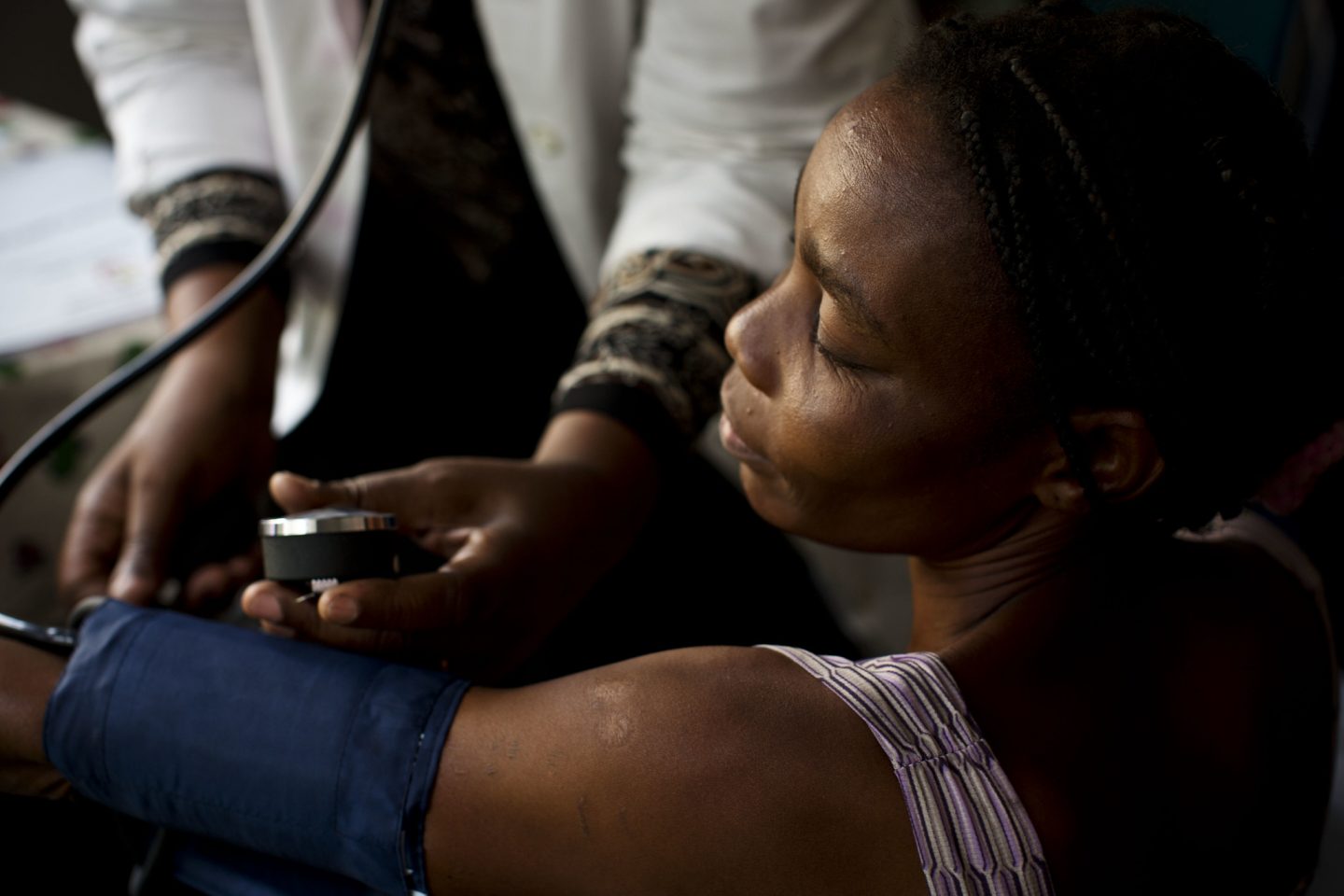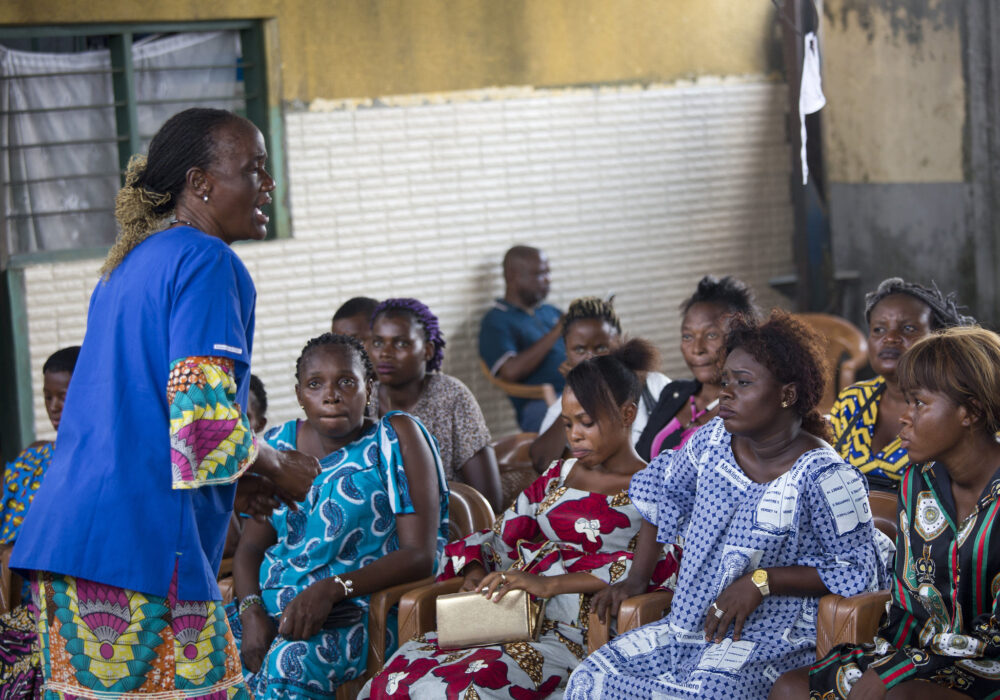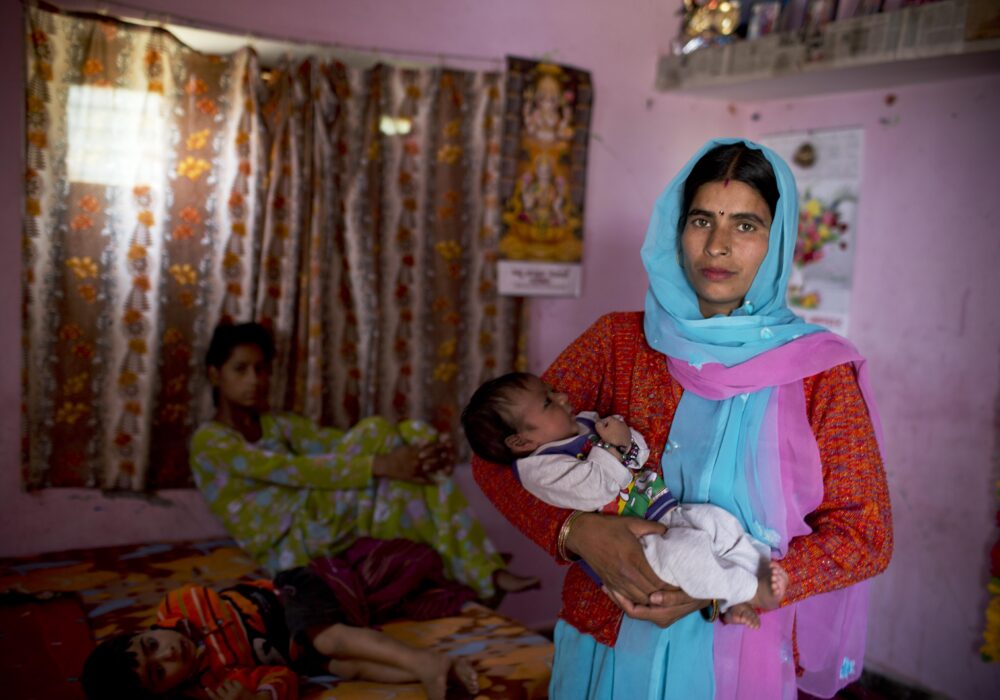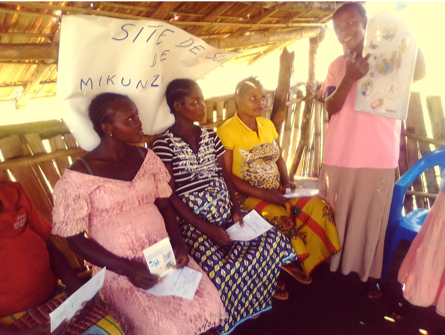DRC



Country Contact
Virgile Kikaya, Country Director
Tel. 243 851885832
48 Avenue Roi Baudouin
Deuxième étage
Gombe/Kinshasa
Democratic Republic of the Congo
Current and Recent Donors
Bill & Melinda Gates Foundation
CDC
Global Fund to Fight AIDS, Tuberculosis and Malaria
Unitaid
USAID
World Bank/Ministry of Health
World Health Organization
Since the 1980s, we’ve supported quality health care for Congolese families.
- Jhpiego collaborated with the National Program for Reproductive Health to train 34 provincial trainers and health care workers, culminating in the availability of family planning (FP) services, including postpartum FP, at 40 health centers and eight hospitals in Tshopo and Bas-Uele provinces. Provincial trainers ensured training of 96 providers and 120 community health workers. Prior to this intervention, FP services were virtually nonexistent in these provinces.
- Due to Jhpiego’s capacity-building efforts, the national associations of midwives, nurses, pediatricians and obstetricians now have in-house capability to provide and train others to provide essential services in postpartum FP and maternal and newborn health. There is also a model training center in Kinshasa that provides competency-based in-service and pre-service training to providers and medical students.
- Jhpiego introduced a new capacity-building approach with low-dose, high-frequency (LDHF) on-site training at 16 facilities, resulting in improved management of normal and complicated deliveries and uptake of immediate postpartum FP. In response to a Ministry of Health request to scale up this training approach, Jhpiego helped extend use of LDHF in 49 health zones across eight provinces (20% of health zones in these provinces). A total of 133 trainers/mentors are now capable of supporting LDHF training and have used this approach to build capacity of 1,244 health providers in 316 facilities to reinforce quality service delivery for women and newborns.
- Through the Jhpiego-led TIPTOP project, community implementation of intermittent preventive treatment of malaria in pregnancy (IPTp) helped increase IPTp coverage among pregnant women receiving antenatal care, thereby giving these women more opportunities to receive malaria protection and comprehensive care in pregnancy. From 2018 to 2022, more than 350,000 doses of IPTp were given to pregnant women under direct observation.

Our Work in DRC
Enhancing Global Health Security: Expanding Efforts and Strategies to Protect and Improve Public Health in the DRC
Jhpiego is leading this five-year project, funded by the U.S. Centers for Disease Control and Prevention, to support global health security in DRC in partnership with the Ministry of Health, other governmental institutions and global health security implementing partners. This project is supporting the establishment of a public health emergency management program, including designation of staff, to establish national policies, regulatory/legislative frameworks and guidance documents, and to prepare provincial teams for rapid response to potential outbreaks and other emergencies. It is also assisting in the development and establishment of a National Public Health Institute that will integrate core public health functions including surveillance, public health emergency management, workforce development and the national laboratory system. In addition, the project supports national efforts to prevent, detect and respond to outbreaks of COVID-19 and Ebola.
Accelerating Measurable Progress and Leveraging Investments for Postpartum Hemorrhage Impact (AMPLI-PPHI)
This multi-country project is catalyzing the introduction and adoption pathways for quality-assured drugs to treat postpartum hemorrhage (i.e., heat-stable carbetocin, tranexamic acid and misoprostol) through engagement and coordination with country governments and key stakeholders. The project aims to reduce maternal mortality and morbidity by making sure the right drug is in the right place at the right time for the right indication. Funded by Unitaid, AMPLI-PPHI is led by Jhpiego and supported by consortium partners PATH and the International Federation of Gynaecology and Obstetrics (FIGO). In addition to operating in four target countries (the Democratic Republic of Congo, Guinea, Kenya and India), an additional 13 other influence countries are benefitting from country and learning exchanges as well as from the sharing of project learning, resources and tools. For more information, please visit the project website.
Global Reach II
The U.S. President’s Emergency Plan for AIDS Relief, has delivered remarkable lifesaving results, with several countries approaching UNAIDS 95-95-95 goals for HIV epidemic control. As countries like DRC come closer to their targets, challenges to close the remaining gaps and cross the “last mile” become more difficult, requiring innovative, targeted approaches to ensure equity and extend services to the hardest-to reach populations and underserved areas. Global Reach II is a five-year project that supports the delivery of effective solutions to address these challenges in country-level HIV responses, adapting to the country contexts. Funded through the U.S. Health Resources and Services Administration (HRSA), Jhpiego leads the project with the following partners: University of California San Francisco, International Treatment Preparedness Coalition, Project ECHO, African Forum for Research and Education in Health (AFREhealth), Johns Hopkins University Center for Global Health and Ata Health Strategies. In DRC, this project is supporting pre-service education institutions and responsible government ministries to ensure that nurses in particular are well prepared to provide HIV and maternal and newborn health services in their communities. The project is also working with the National Order of Nurses on implementation of a 2016 law creating a system of registration and regulation of nursing cadres.
Access Collaborative 3.0
Under this two-year project funded by the Bill & Melinda Gates Foundation, Jhpiego is providing continuous technical assistance in the introduction and scale-up of subcutaneous depot-medroxyprogesterone acetate (DMPA-SC) in Benin, the Democratic Republic of Congo and Togo. Also known as Sayana® Press, DMPA-SC is an innovative injectable contraceptive that can be self-injected and has the potential to dramatically expand family planning access and choice when offered as part of a broad method mix. In addition to seeking to make DMPA-SC, including self-injection, more available in the three countries, the project aims to ensure provision of technical assistance, knowledge sharing, data tools, research findings and other resources to enable more than 30 countries to introduce and scale up DMPA-SC and self-injection.
Country Contact
Virgile Kikaya, Country Director
Tel. 243 851885832
48 Avenue Roi Baudouin
Deuxième étage
Gombe/Kinshasa
Democratic Republic of the Congo
Current and Recent Donors
Bill & Melinda Gates Foundation
CDC
Global Fund to Fight AIDS, Tuberculosis and Malaria
Unitaid
USAID
World Bank/Ministry of Health
World Health Organization






